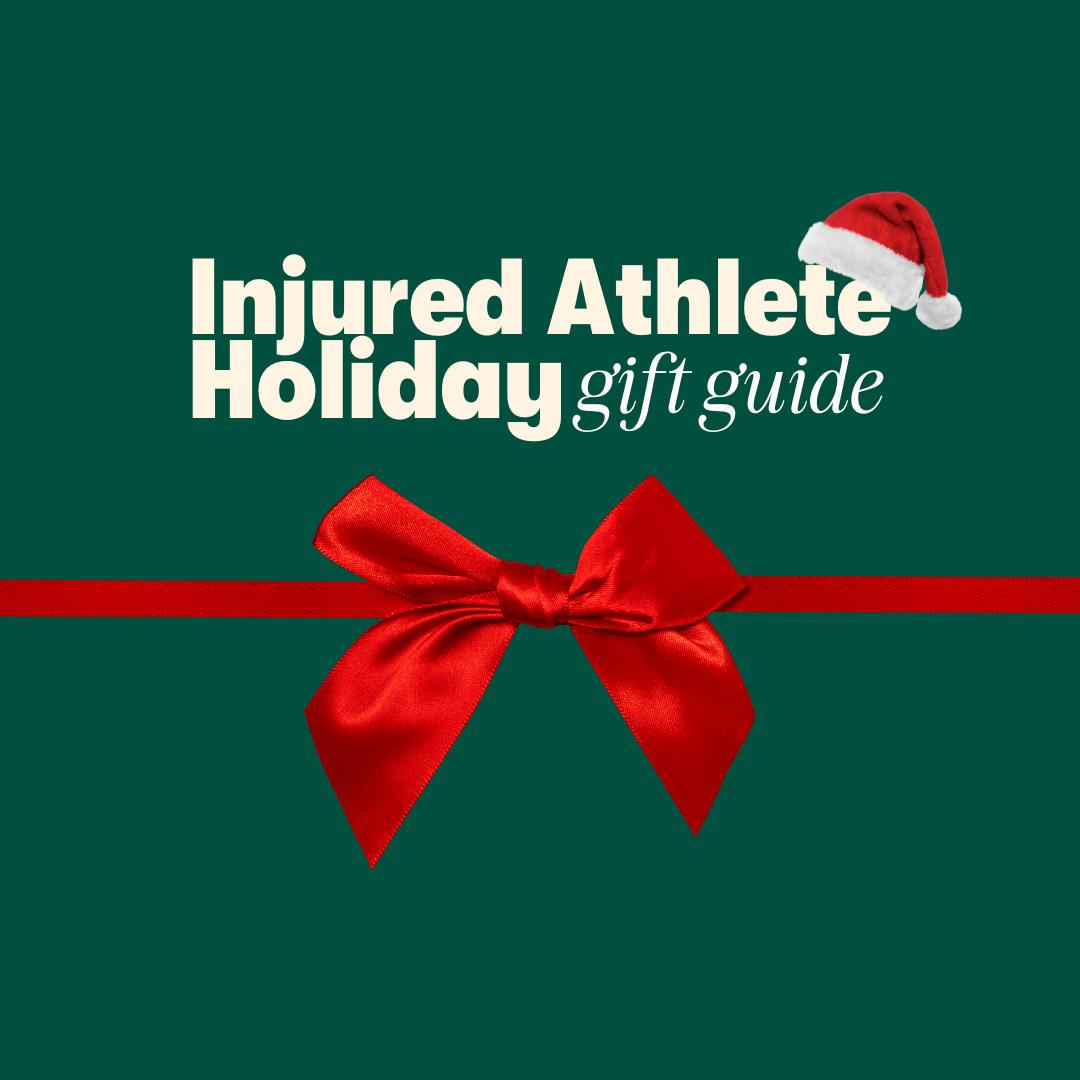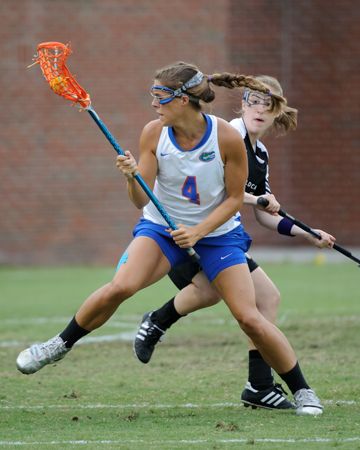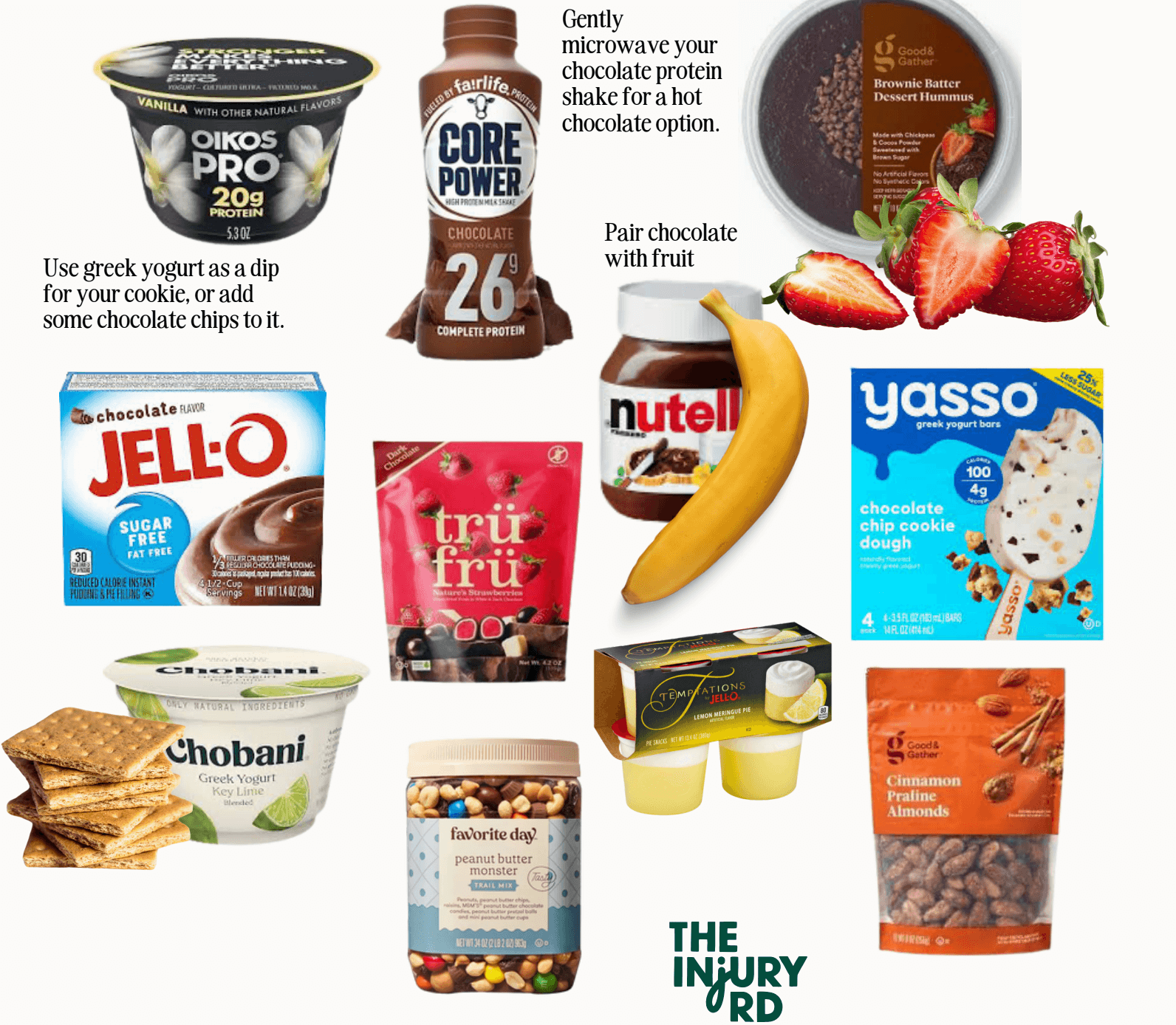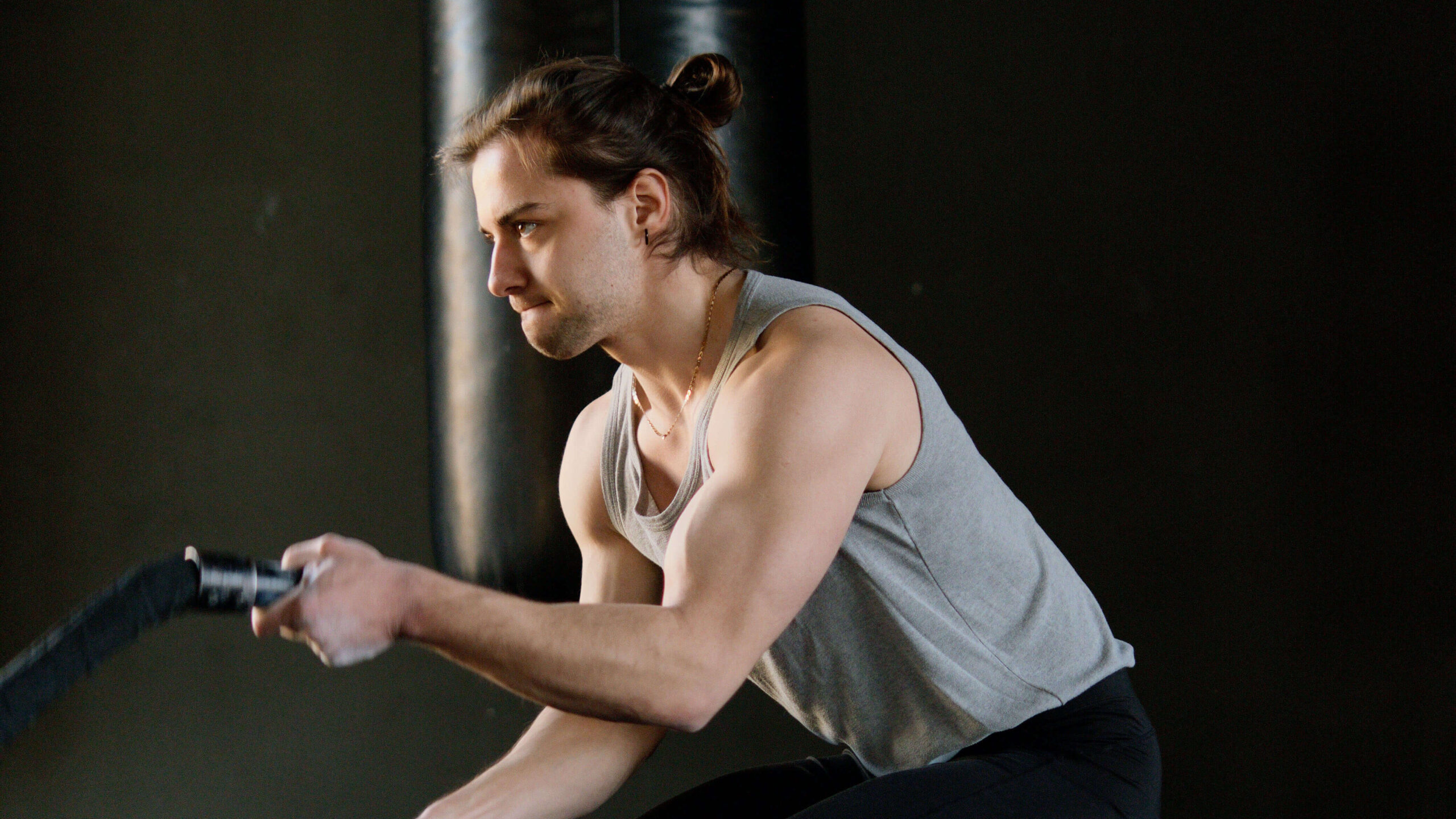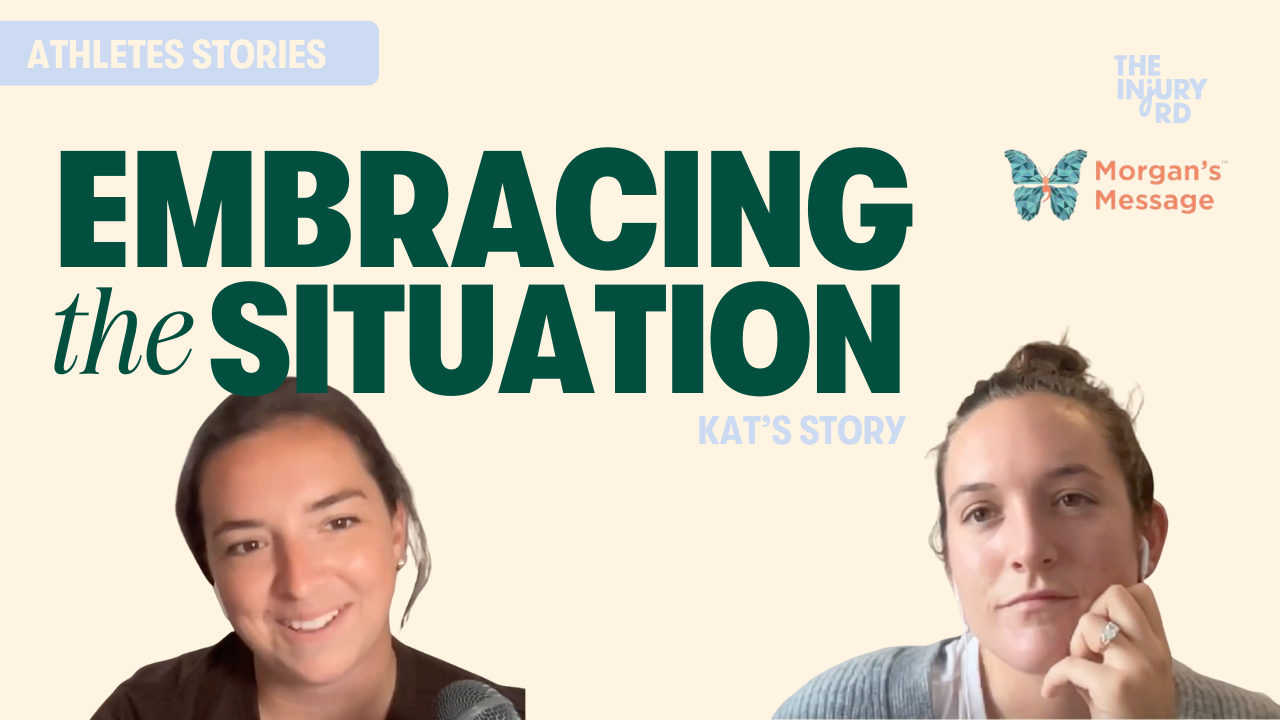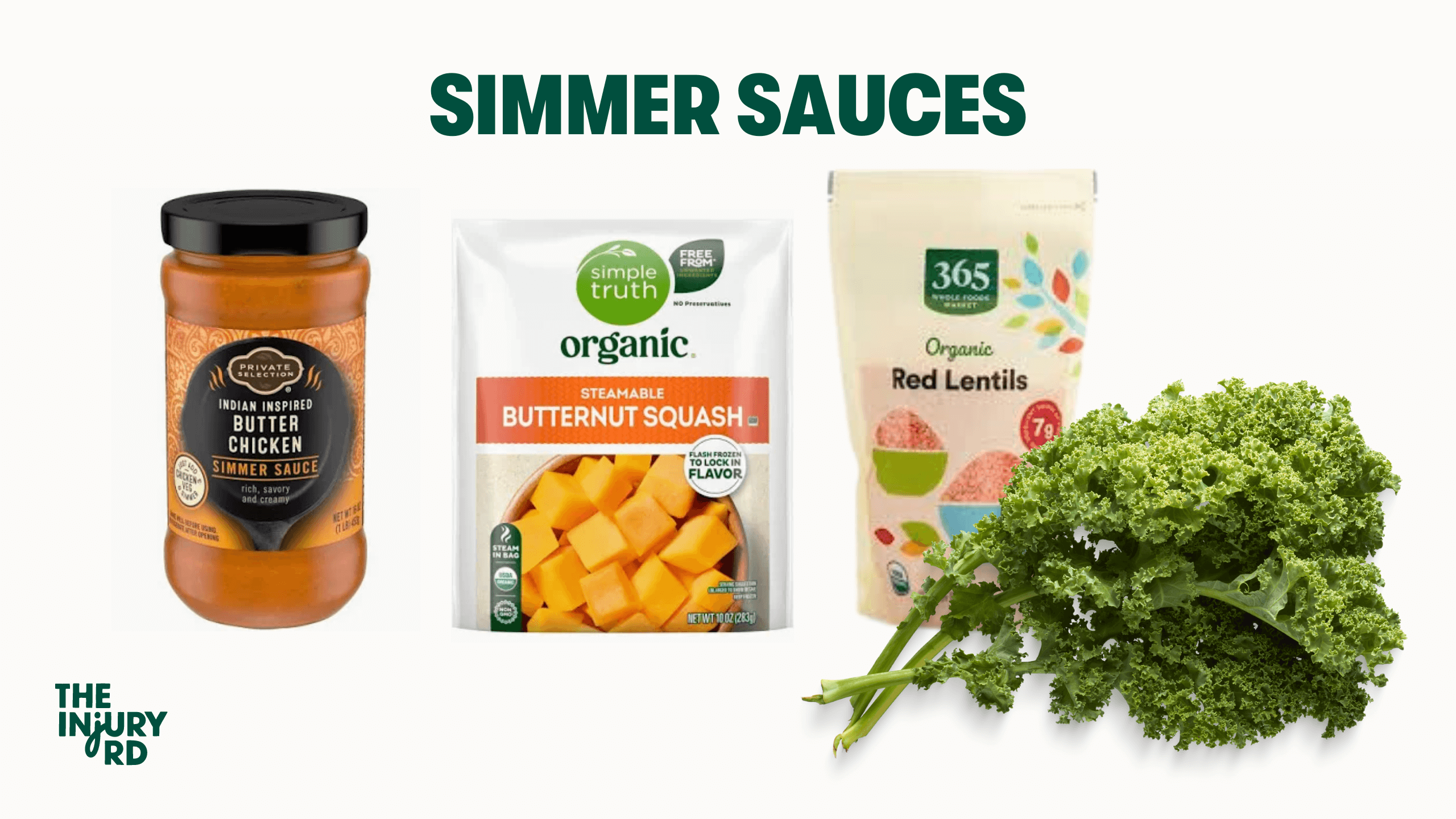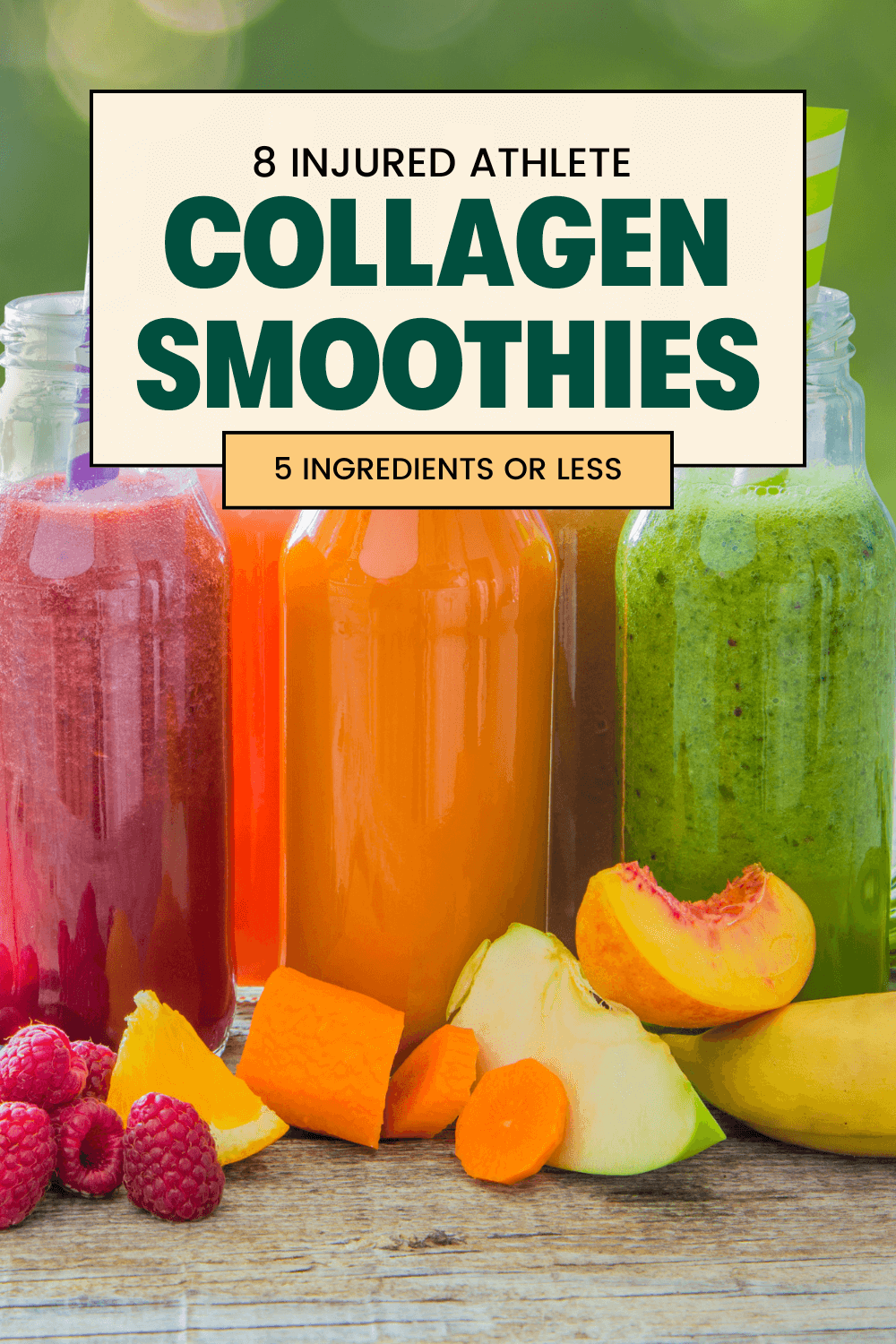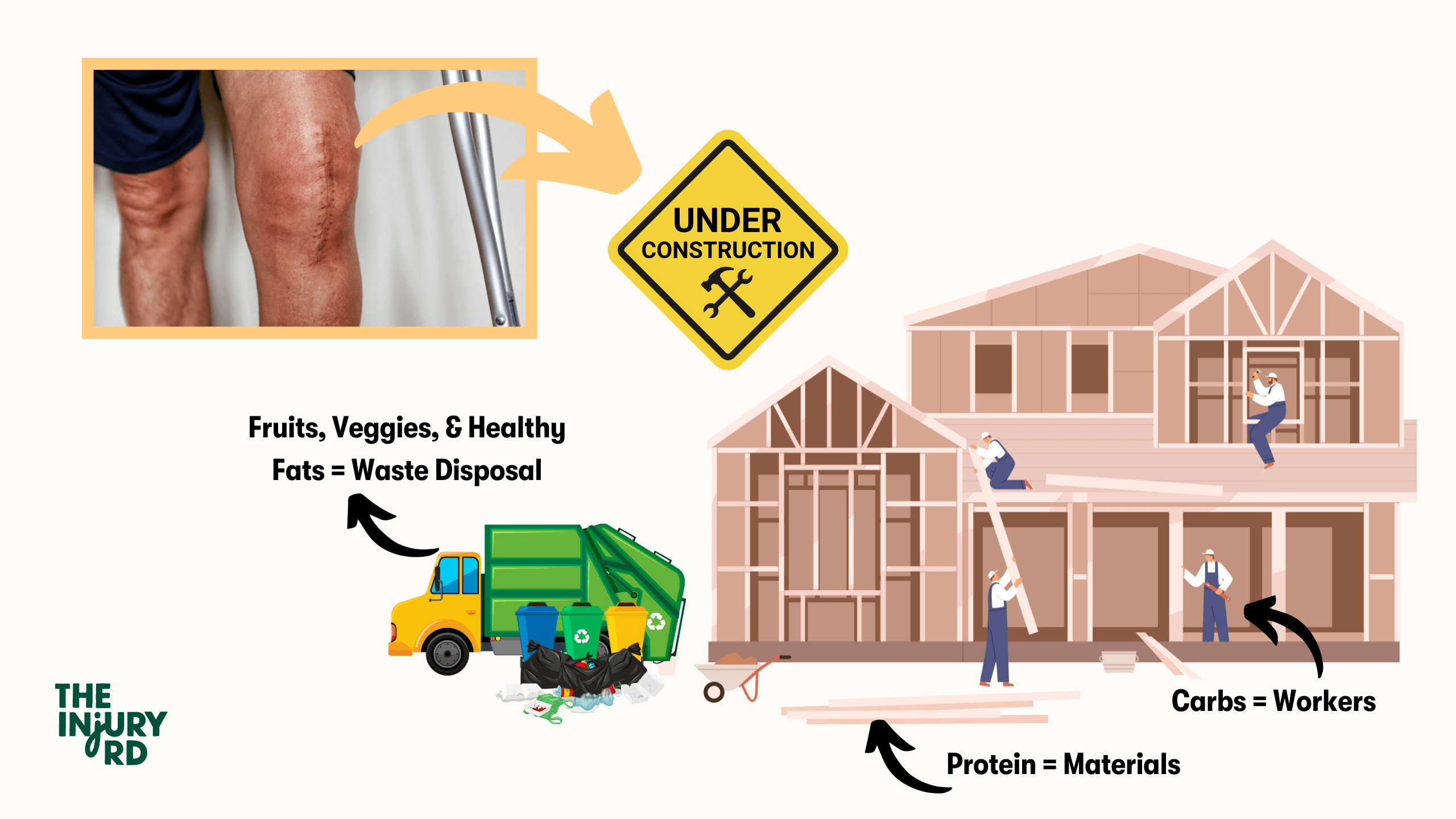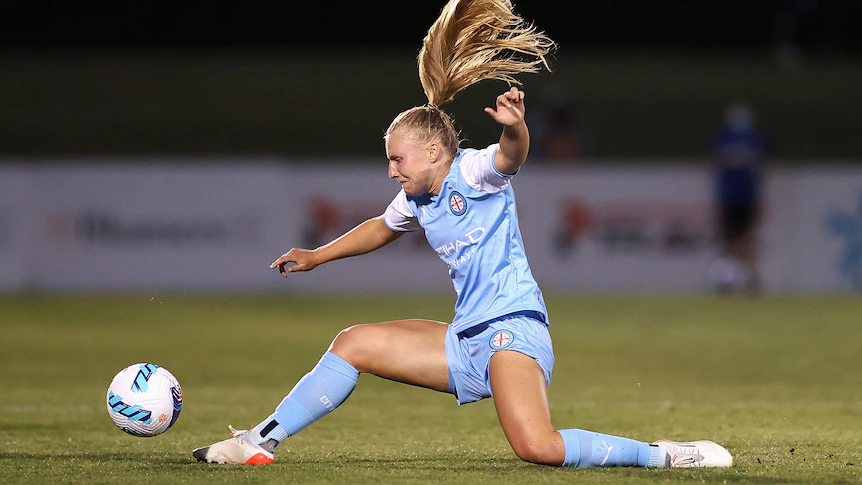Questions I get all the time: Can I lose weight during injury recovery? How will weight loss impact my ACL healing? “Emily, I’m STRESSED about gaining weight. I feel all over the place. What do I do?”
Recovering from ACL surgery comes with plenty of challenges, and concerns about weight gain are extremely common. I’ve seen so many athletes receive Get Well Soon cookies that send them into a mental spiral. Should I eat it? I don’t need that right now… right? Right?!
The good news? It’s 100% YOUR CHOICE if you want to focus on weight loss while supporting your recovery. I’m here to help explain what that might mean, empower you in that choice, and strike the right balance between rest, recovery, and actually enjoying your food.
Watch this article on YouTube
Injury Weight Gain is Normal (and understandably uncomfortable)
Recovering from ACL surgery or a similar injury is overwhelming, and a fear of weight gain, or a sudden feeling that your body is different than your normal is not helpful. Any time you are exploring a weight change goal, you need to understand where that goal is coming from.
Take a step back—why do you want to lose weight? Getting to the heart of this goal can help you stay motivated while ensuring your approach aligns with your recovery process. Let’s unpack the reasons behind your goal.

Photo by Forbes
Start by asking yourself these 3 questions:
What does this weight loss change?
How will you be different once you hit this weight goal, or this pant size?
Does it change your confidence? Your ability to find a romantic partner? Your athletic ability? Does it make this injury recovery process go faster? (Hint, no on the last one.)
Any reason is valid, but having clarity will shape how you approach your goal safely, and it will let us add specific habits or things to track in addition to the number on the scale.
Is there a way that I can achieve this outcome that has nothing to do with my weight?
And am I consistently working on that?
There are ways to
- feel more confident
- feel more comfortable in your clothing
- get faster
- get stronger
- and so many more
without changing your weight at all.
If you’d like to work on a weight loss goal during your injury rehab, I totally support you. AND, we have to have additional goals that support the real goal here.
Are you willing to focus on those actions and release the outcome?
The actions are in your control. The outcome isn’t always.
Are you willing to choose the actions that are healthy and helpful, but may cause weight loss to happen slower?
Losing weight with an injury… yay or nay?
When recovering from ACL surgery, your body works overtime to repair tissues and regain strength. Diet plays a critical role in how well and how quickly you heal. While focusing on weight loss might seem like a priority, it’s so freaking important to understand how nutrition habits influence recovery and overall health.
Healing demands more than calories—it requires the right nutrients and avoiding pitfalls like an unsustainable calorie deficit.
Nutritional Needs for Healing
Your body is essentially a construction site after surgery, and the workers (your cells) need the right materials to rebuild. Supplying these materials through proper nutrition ensures your recovery stays on track. Let’s break down what your body needs most:
- Calories: The number one most important thing during injury recovery is eating ENOUGH. Your body is putting in WORK and needs energy for that, even if it feels like you’re not moving.
- Protein: Think of protein as the bricks your body uses to rebuild tissues. Without enough protein, wound healing slows, and muscle loss accelerates. Aim for lean sources like chicken, fish, eggs, or plant-based options like lentils and tofu.
- Carbs: Carbohydrates provide essential energy so that your body can actually build with those bricks.
- Vitamin C: Vitamin C helps the body produce collagen, which strengthens ligaments and tendons. Citrus fruits, strawberries, potatoes, and peppers are great sources. Most of us are getting plenty of Vitamin C in our diet.
- Zinc: Found in nuts, seeds, and beef, zinc supports protein synthesis and immune function, both essential for tissue repair.
- Omega-3 Fatty Acids: These are like the oil that makes healing run smoothly, easing inflammation in the body. Incorporate salmon, walnuts, and chia seeds into your meals, and consider an omega-3 supplement.
- Magnesium: This is a powerhouse that’s involved in over 300 “building” processes in your body. Beans, legumes, carbs (whole grains), nuts and seeds are so important.
Recovery is a complex process, and neglecting nutrients can leave your body in panic mode. When attempting to lose weight, you might leave your metaphorical construction zone stranded without the materials and construction workers it needs.
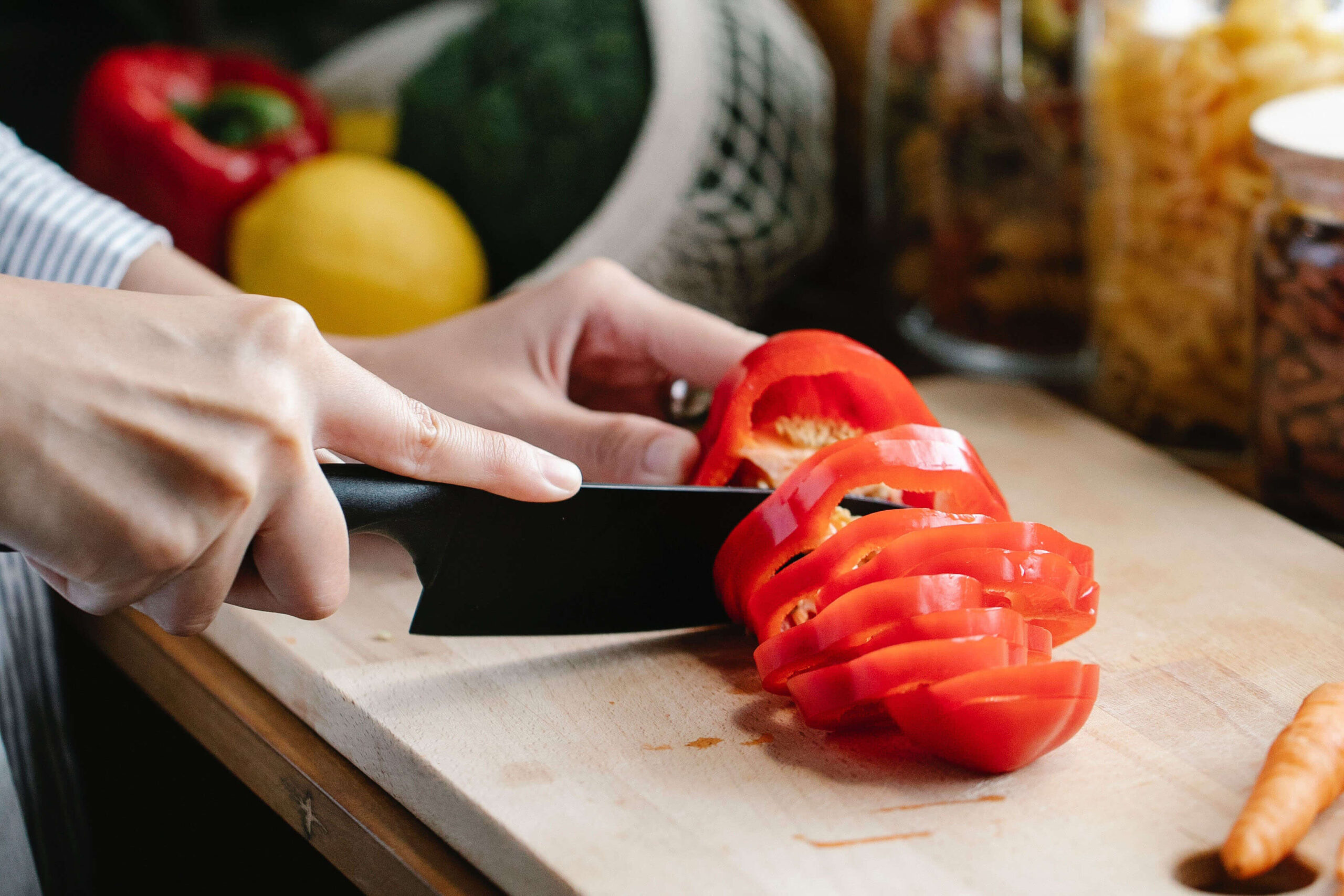
How a Calorie Deficit Impacts Your Injury Recovery
Sure, reducing calories can help with weight loss, but it’s a double-edged sword when you’re recovering from surgery. Choosing a weight loss goal potentially means slowing your recovery. At the end of the day, you have the power to make that choice!
- Muscles: After surgery, maintaining muscle mass is crucial for rehab. A calorie deficit without sufficient protein can lead to muscle breakdown—undoing the progress of physical therapy. You cannot build muscle while in a calorie deficit
- Tendons and Ligaments: These connective tissues regain strength and flexibility during recovery. Without adequate nutrients, particularly collagen-supporting ones, their repair slows significantly.
- Bones: Bones are super energy-dependent, and I actively advise against a calorie deficit while healing a bone fracture.
Your Recovery Timeline
Recovering from ACL surgery is a step-by-step process. Each phase of healing brings its own challenges and needs. Understanding how dieting affects these stages can mean the difference between smooth progress and setbacks.
Dieting During Each Stage
Your body is working overtime to heal. Cutting calories too aggressively during recovery can make this harder. Let’s explore how a calorie deficit may affect each phase of the ACL recovery timeline:
Stage 1: Post-Surgery (Weeks 1–6)
This is the time for your body to focus on immediate healing. Inflammation peaks, and tissue repair is underway. Energy and nutrients are critical. Severe calorie restriction during this stage can:
- Slow down wound healing, leading to longer recovery times.
- Leave you feeling weak, lethargic, or dizzy, especially with post-surgical pain meds in the mix.
- An increased rate of muscle wasting, meaning more muscle loss and potentially a longer road to gain it back later.
This is not the time to work on weight loss.
Stage 2: Rebuild
Rehabilitation starts as you regain motion and build strength. Your physical therapist focuses on restoring knee movement and stability. Muscle fuel is essential here. If you’re in a calorie deficit, your muscles can’t support the increased strain. Risks of cutting too many calories at this stage include:
- Losing lean muscle mass, which you’ll need for stabilization.
- Feeling exhausted, making it harder to complete physical therapy sessions.
- Slowing ligament repair due to low energy intake.
Stick to nutrient-heavy meals that include carbs for energy and enough protein to protect muscle tissue.
Stage 3: Return to Sport (Months 6-12)
During this phase, you shift focus to rebuilding strength and balance. Exercises become more intense, and we need to fuel for that, but this is also the ideal time to work on body composition change.
- Keep your deficit modest: 300-500 calories per day.
- Fuel for your workouts!
- Don’t limit food groups.
Balanced meals with slow-digesting carbs, healthy fats, and ample protein can keep your energy steady.
TL;DR
I empathize with feeling uncomfortable in your skin and wanting to make a change. This is why I say this choice is up to each athlete (unless you have a strict return-to-play timeline).
Ideally, I don’t want my injured athletes to work on weight loss until the return-to-play stage. Until then, we can work on body recomposition (maintaining weight while shifting fat and muscle mass).
Body Recomposition
Set Action-Based Goals
When recovering from ACL surgery, your goals should push you forward but also respect your limits and allow wiggle room for life.
- Break Goals Into Steps: Instead of “I’ll lose 10 pounds,” aim for action-based steps like “I’ll focus on hitting my protein goal this week.”
- Match Nutrition Goals to Your Healing Phase: Just had surgery? Focus on protein every 3-4 hours. Having setbacks with soreness and swelling? Focus on antioxidants, fruits, veg, and healthy fats.
- Focus on Non-Scale Wins: Improved strength, better sleep, or increased energy are often more meaningful than numbers on a scale.
- Adjust As You Go: Your abilities will change over time. Be open to tweaking your goals as recovery progresses.
For more specific guidelines based on your body, your injury, your taste preferences and needs, check out The Menu Challenge!
Happy Fueling <3
FUEL YOUR COMEBACK

